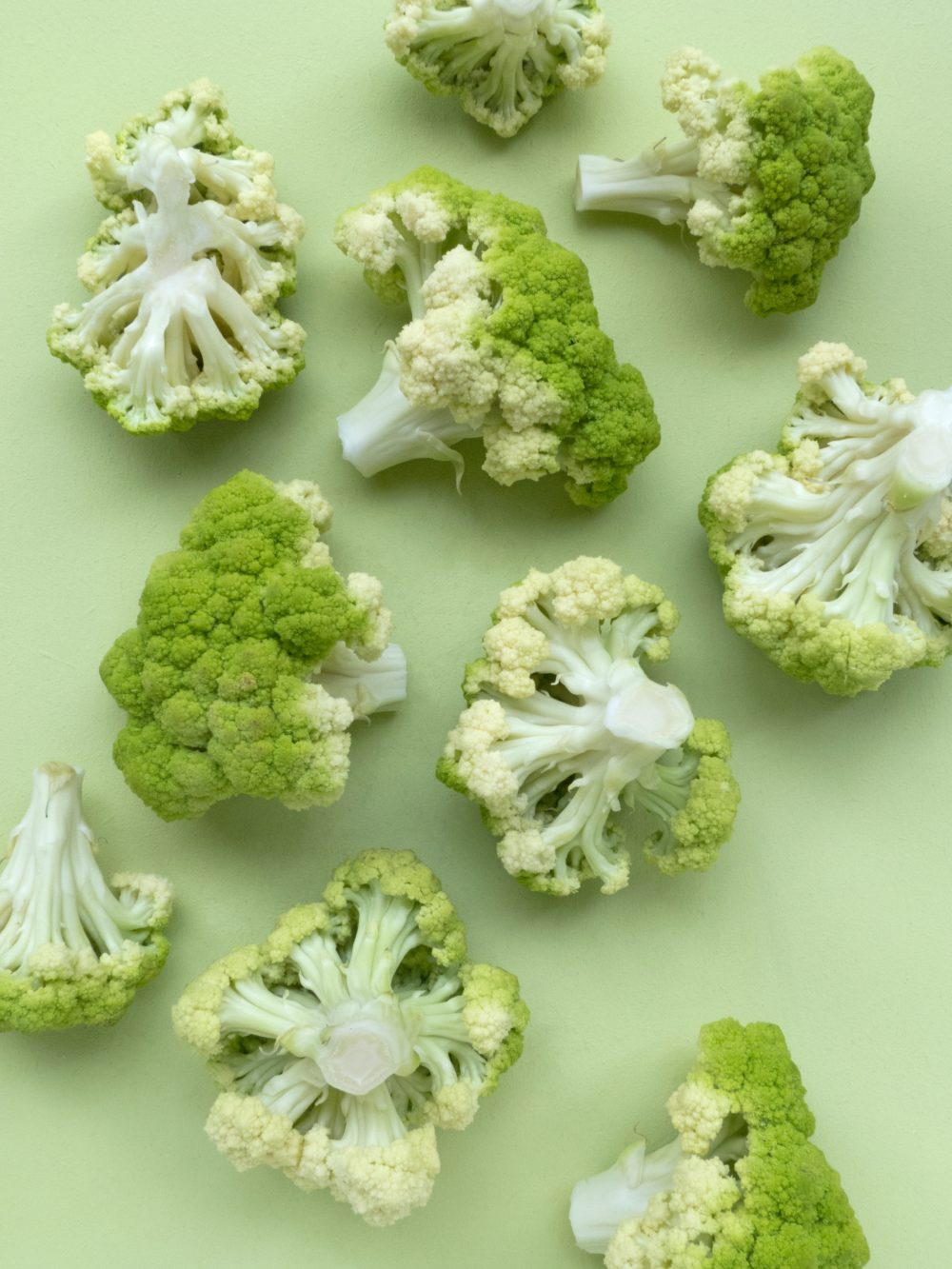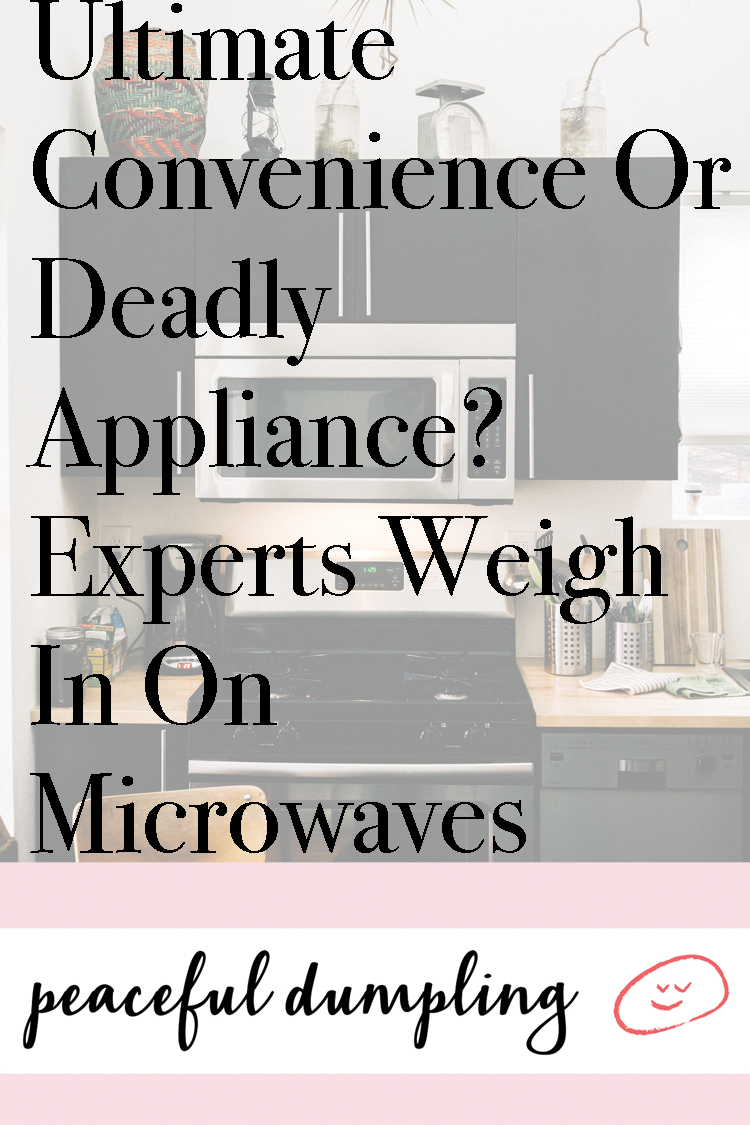Growing up I didn’t have a microwave. My apartment Freshman year of college was the first time I discovered the conveniences having a microwave could provide. Since then, I’ve had a microwave in every home I’ve lived in and have used the appliance frequently. Recently, however, I started asking myself, Okay, I’m saving time but at what cost?

My Usage of the Microwave
Typically, I like to prepare large batches of food. When the time comes to re-heat my meals, my go-to appliance is the microwave.
If friends or family see me heating food for them in the microwave, I always find myself apologizing for doing so. “I know,” I say guiltily, “Sorry, it’s just for this one thing” or “I don’t use it that much.”
I’ve heard many negative things about microwaves. From small, innocuous accusations like “they’re an eyesore” to terrifying statements claiming microwaves cause cancer by emitting radiation or deplete food of its nutritional value.
Microwave usage is a widely controversial topic and the internet is abundant with varied opinions on the matter.
Why So Much Controversy?
When asked about microwaves, the average person will likely tell you that they’re bad.
Before writing this article, my own impression of the microwave was that, although it simplified things, it was a device ridden with problems. It spewed dangerous rays and somehow negatively manipulated my food. Overusage of the machine, I thought, could certainly put me at risk for cancer.
Where did I get these notions from? From other people.
Where did they get those people get their notions from? From other people.
It seems to be that when it comes to the microwave, there’s a lot of bad press by way of word of mouth. Humans go around telling one another that the microwave is bad; therefore, the microwave must be bad.
Is It Really Bad?
In a nutshell, no.
For the scientific information gathered I drew from two reputable sources; Harvard Health and The New York Times.
The Basics–How Does A Microwave Work?
Microwaves cook food using energy waves that are akin to radio waves, only shorter. These waves are really picky. They almost exclusively effect water and other molecules that are electrically asymmetrical. These molecules vibrate and rapidly build up thermal energy, which is what makes your food hot. Fortunately, there is no evidence that microwaves can harm the human body, according to Dr. Anthony L. Komaroff, M.D. of Harvard Health.
Does A Microwave Rid Food of Nutrients?
Sometimes. But this can occur when food is exposed to any source of heat. This means nutrients escape food in the microwave but also in the oven, when boiled on the stove, when fried in a pan…etc.
Professor of food engineering at Cornell University Ashim Datta cautions that because microwaves heat food unevenly, some spots may get extremely hot, leading to significant nutrient degradation in those areas. To ensure that your food is getting heated more evenly, use the microwave on a low power setting and cover it with a BPA-free cover (avoid saran wrap and other flimsy plastics, which can melt).
Is Using the Microwave the Better Choice?
According to Dr. Komaroff, Editor in Chief of the Harvard Health Letter, using the microwave is “actually one of the least likely forms of cooking to damage nutrients.”
The more time food cooks, the higher the likelihood of nutrients breaking down. Therefore, as microwave cook times are shorter there is less time for the nutrients to leach out of the food.
“Using the microwave with a small amount of water essentially steams food from the inside out. That keeps more vitamins and minerals than almost any other cooking method,” according to another article published by Harvard Health.

Have I Been Completely Killing My Vegetables By Cooking Them?
Absolutely not. Eating vegetables is a good thing no matter which way you cook them.
Although heating food can decrease certain nutrients such as Vitamin C or Vitamin B12, other nutrients, like carotenoids, can benefit from the rise in temperature.
My Take Away
After doing extensive research, I feel I can breathe easy about using my microwave.
Tips:
-Don’t cook everything in the microwave.
- While it isn’t dangerous, the taste is often inferior.
- Ask yourself: is the microwave the best way to cook something? Different appliances have different purposes. For example, when boiling water: you could boil water in the oven. However, boiling water on the stove is a better approach.
-Never cook metal in the microwave (including reheating your coffee in a gold-rimmed mug!).
-Ensure if putting plastic in the microwave it is BPA-free.
-Cover food with a lid when cooking in the microwave to ensure moisture is retained.

Do you have a microwave in your home? Have you been criticized for your microwave usage?
Also by Bella: Turn Your #BrowGoals Into Reality With This Genius 30 Second Trick
Related: 8 Artisan Salts That Every Lifestyle Guru Worth Her…Salt Should Have
Busted! 4 Health Foods That Are Actually Unhealthy–And What To Eat Instead
Get more like this—Subscribe to our daily inspirational newsletter for exclusive content!
__
Photo: Mike Marquez on Unsplash, FOODISM360 on Unsplash
